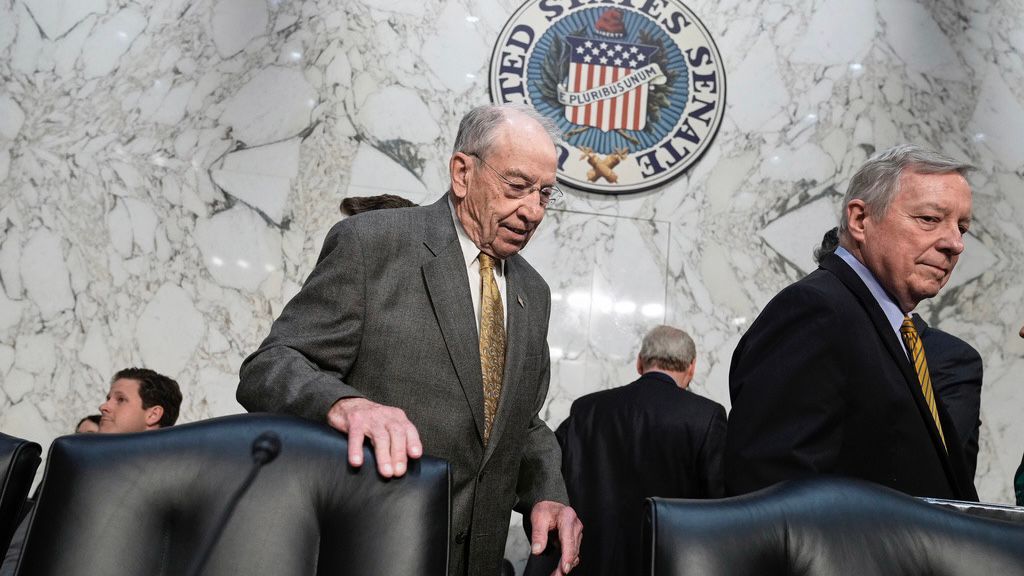WASHINGTON — With global stock markets plummeting following President Donald Trump’s reciprocal tariff announcement, a bipartisan pair of senators introduced legislation Thursday that would require Congress approve most new import taxes.
The Trade Review Act of 2025 would command the president to notify lawmakers of any new tariffs within 48 hours of them being imposed.
“For too long, Congress has delegated its clear authority to regulate interstate and foreign commerce to the executive branch,” Sen. Chuck Grassley, R-Iowa, said in a statement Thursday.
Introduced with Sen. Maria Cantwell, D-Wash., the bill is to reassert Congress’ constitutional role and ensure it has a voice in trade policy, Grassley said.
“As a representative of one of the most trade-dependent economies in America, I disagree with President Trump’s tariffs,” Cantwell said Wednesday following Trump’s announcement of reciprocal taxes on U.S. trading partners that will go into effect in the coming days. “Ultimately, consumers will pay the price. It’s time for Congress to take action to counter the president’s trade war.”
The top Democrat on the Senate Commerce, Science and Transportation Committee, Cantwell said the tariff on foreign-made vehicles alone would increase car prices by as much as $15,000. Her state is the largest importer of Subaru vehicles in the United States through its port in Vancouver, Washington.
The Trade Review of Act of 2025 is an amendment to the Trade Act of 1974, which gave the president authority to negotiate and implement trade agreements. The proposed legislation requires the president to notify Congress of any duties on a good imported into the United States, including an explanation of the reason it was imposed and an assessment of its potential impact on businesses and consumers.
It allows a new duty for a maximum of 60 days unless Congress approves of an extension. The bill also gives Congress the ability to end tariffs at any time by passing a resolution of disapproval.











